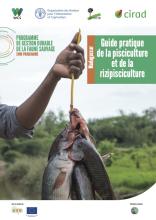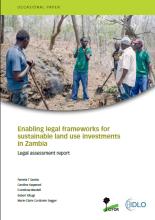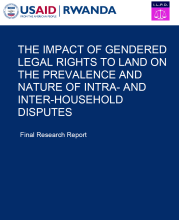Land Library
Welcome to the Land Portal Library. Explore our vast collection of open-access resources (over 74,000) including reports, journal articles, research papers, peer-reviewed publications, legal documents, videos and much more.
/ library resources
Showing items 1 through 9 of 142.À Madagascar, le Programme de Gestion durable de la faune sauvage (ou Sustainable Wildlife Management «SWM» Programme) est mis en œuvre autour du Parc Naturel Makira pour promouvoir la conservation de la biodiversité et améliorer les conditions de vie des popul
Forest landscape restoration (FLR) initiatives are being launched over much of the global South. These initiatives seek to restore ecological functions and associated ecosystem goods and services while improving social outcomes (Mansourian and Vallauri 2014).
New global forest restoration initiatives present an unparalleled opportunity to reverse the trend of deforestation and forest degradation in the coming years.
This report presents the results of a small scale household survey that was conducted in May
2015 to assess the extent to which rural Rwandan citizens are vulnerable or resilient to
environmental, market and land tenure risks and the level they understand the laws and rights
Residential land in Rwanda is scarce due to hilly terrain, a high population and a focus on agricultural growth to address food security concerns.
The International Development Law Organization (IDLO) and the Center for International Forestry Research (CIFOR) assessed the legal frameworks that govern land-use activities and investments in Zambia. The economy of Zambia relies significantly on land and natural resource capital.
Between October 2014 and October 2015, Radio Ishingiro with the support of USAID
Land Project implemented a Communications Campaign focused on influencing the
attitudes and mindsets of men and boys about gender-equal land rights to overcome
This research, entitled "The Impact of Gendered Legal Rights to Land on the Prevalence and Nature of Intra- and Inter-Household Disputes" set out to interrogate the changing landscape of gendered land rights in Rwanda, and to examine the impact of the statutory changes introduced by laws governin
Rwanda has nearly 280,000 hectares of wetlands, almost 11% of the country’s total
area.1 These wetlands provide critical habitats for wildlife and biodiversity, maintain
important hydrologic processes that help to clean and protect ground and surface









